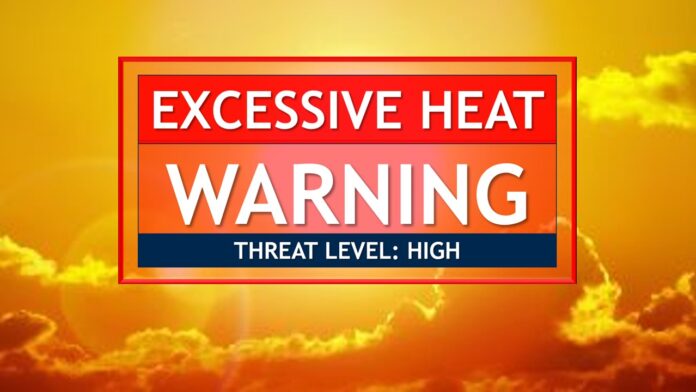MET Office issues Excessive Heat Outlook, as heat index could rise to 106 degrees Fahrenheit within a few days
As residents across the country complain about the heat being experienced, some are saying these conditions are not normal and the place feels like hell.
Not surprisingly, an Excessive Heat Outlook has been put in place by the Antigua and Barbuda Meteorological Services, with this event expected to run from 9 a.m. to 4:30 p.m. on Wednesday, August 31, and on Friday, September 2.
Meterologist Dale Destin adds that, during the latter half of the week, the winds will likely drop to light speeds.
Therefore, this will likely allow for the combination of heat and humidity to cause the heat index – or feels-like temperature threat level – to rise … at least to moderate.
An excessive heat outlook is issued when the potential exists for a heat index of 100 degrees Fahrenheit or higher, and the mean wind speed is usually 11 mph or less, within the next 3-7 days.
According to the forecaster, “In this case, the heat index has the potential to rise to more than 41°C (or 106 °F) in some areas.”
He says an excessive heat watch or warning may eventually be required.
“This level of heat puts everyone at risk for heat illnesses; however, the risks are greatest for the elderly, young children, people with chronic illnesses such as breathing difficulties, heart conditions or psychiatric illnesses, people who work or who exercise in the heat, homeless people and low-income earners,” Destin warns.
Meanwhile, the air quality will be at moderate levels for the next two days, as the MET Office has issued an Air Quality Bulletin.
The bulletin took effect from Monday afternoon, August 29, and is expected to be in place until Thursday, September 1.
Destin says the fall in the air quality levels is as a result of particulate matters that are associated with a fresh surge in the Saharan Dust.
“The threat of health problems is expected to become elevated, for mainly unusually sensitive people, such as asthmatics, and could potentially cause them limited health impacts,” he notes.




